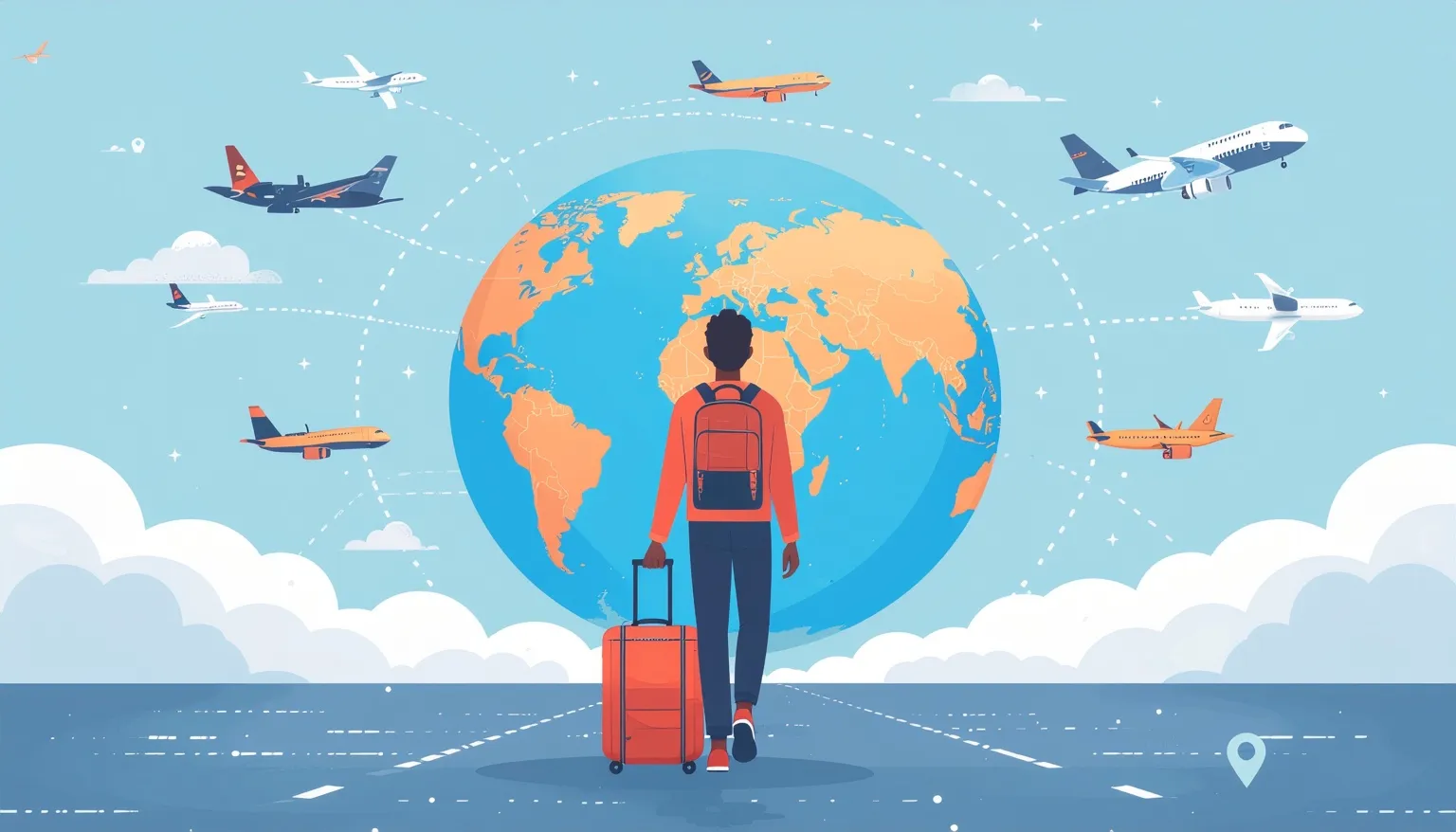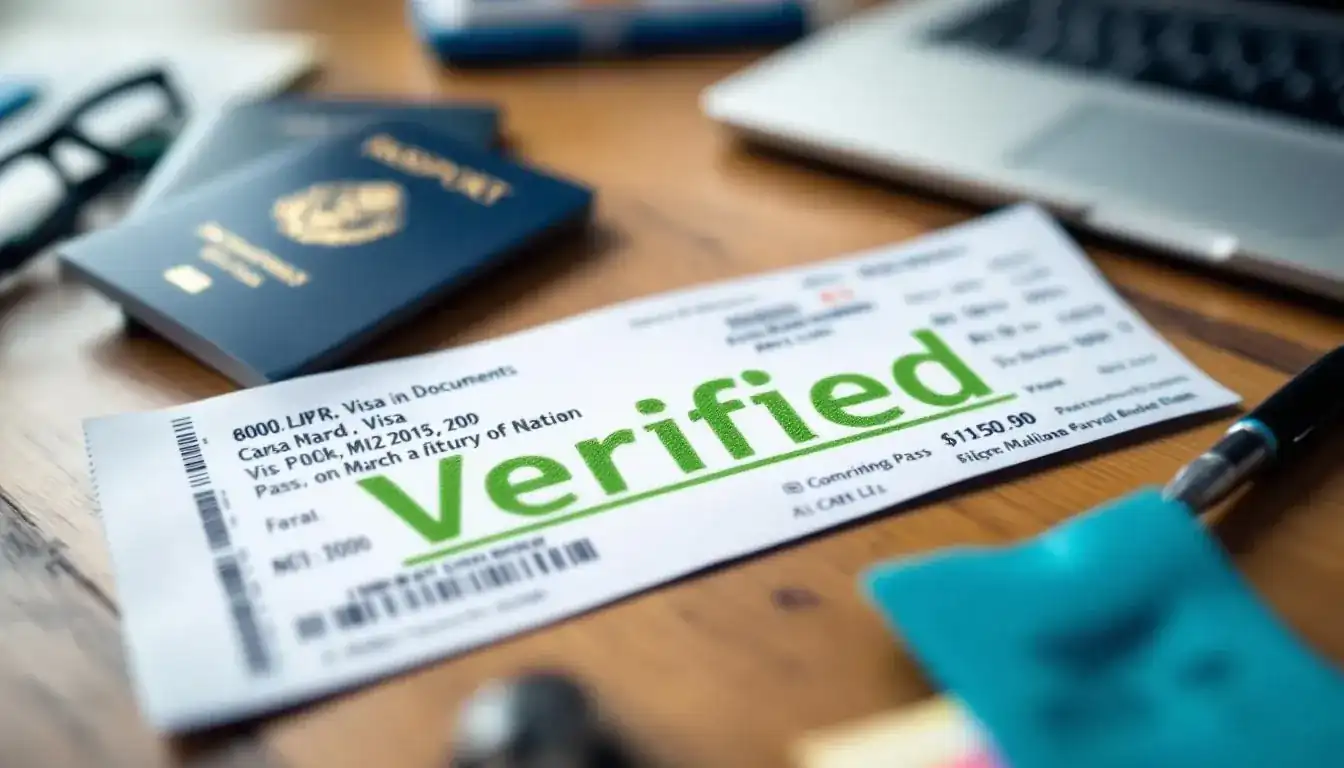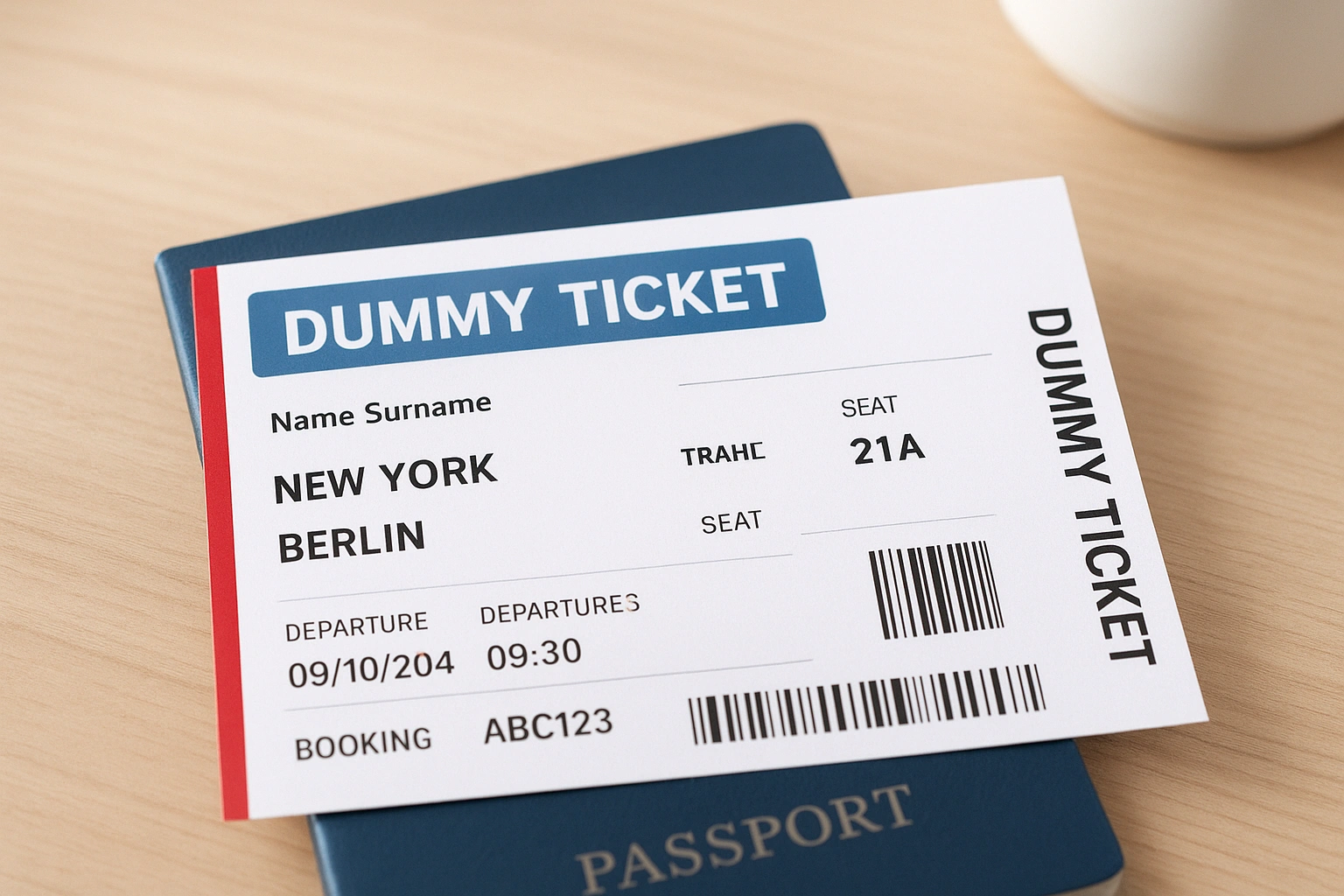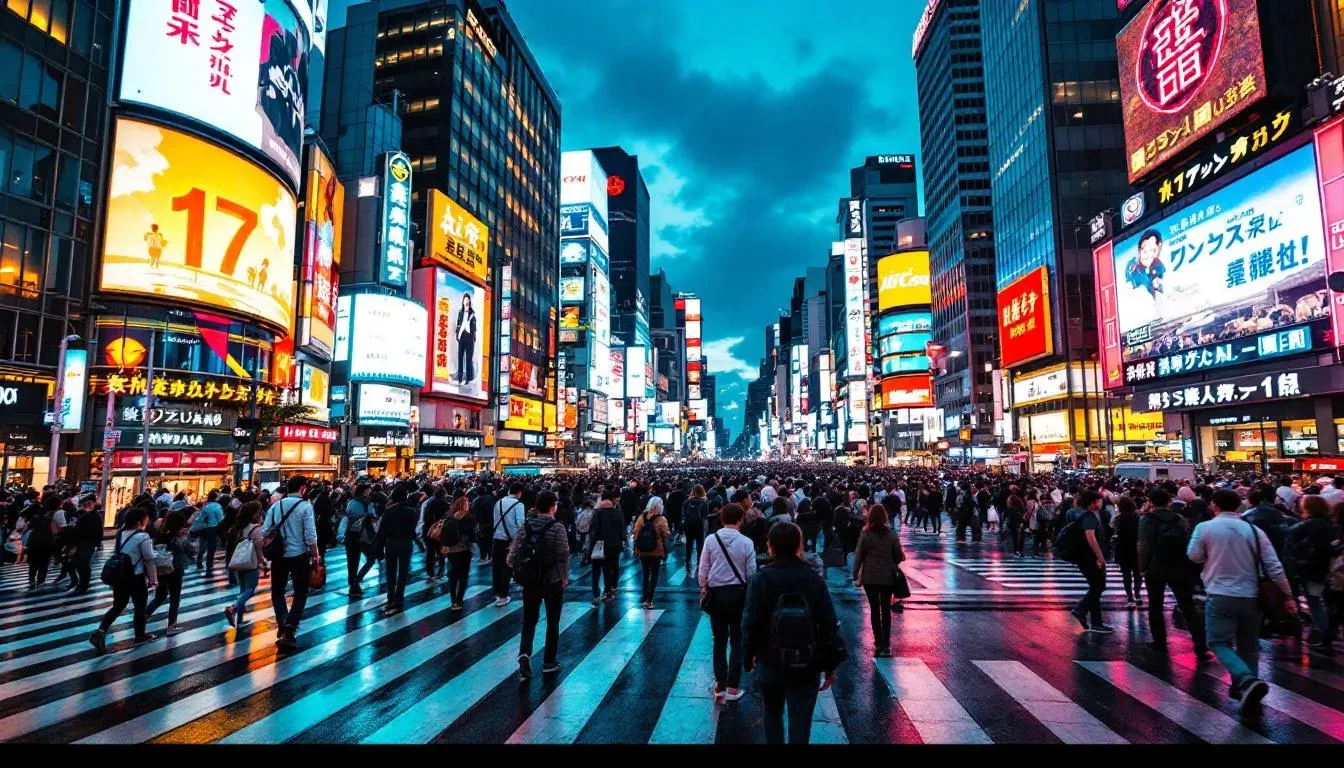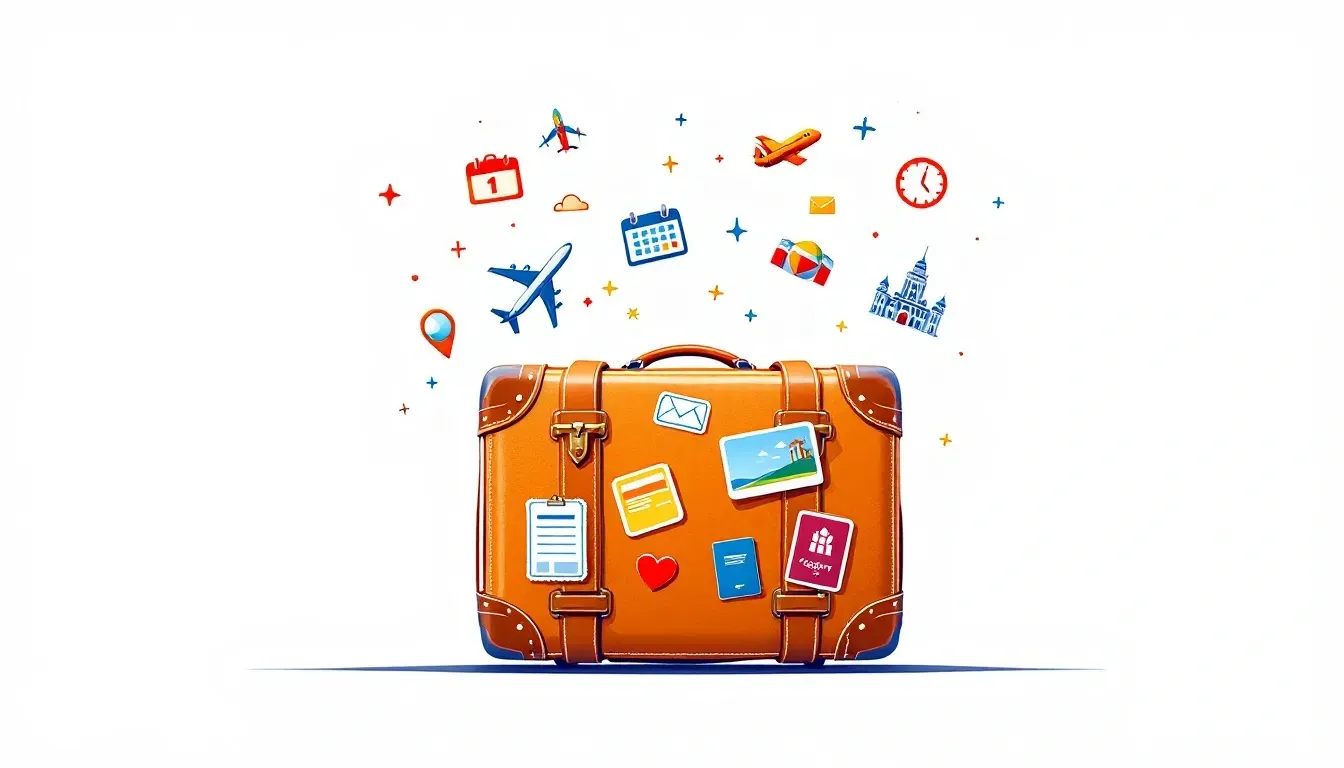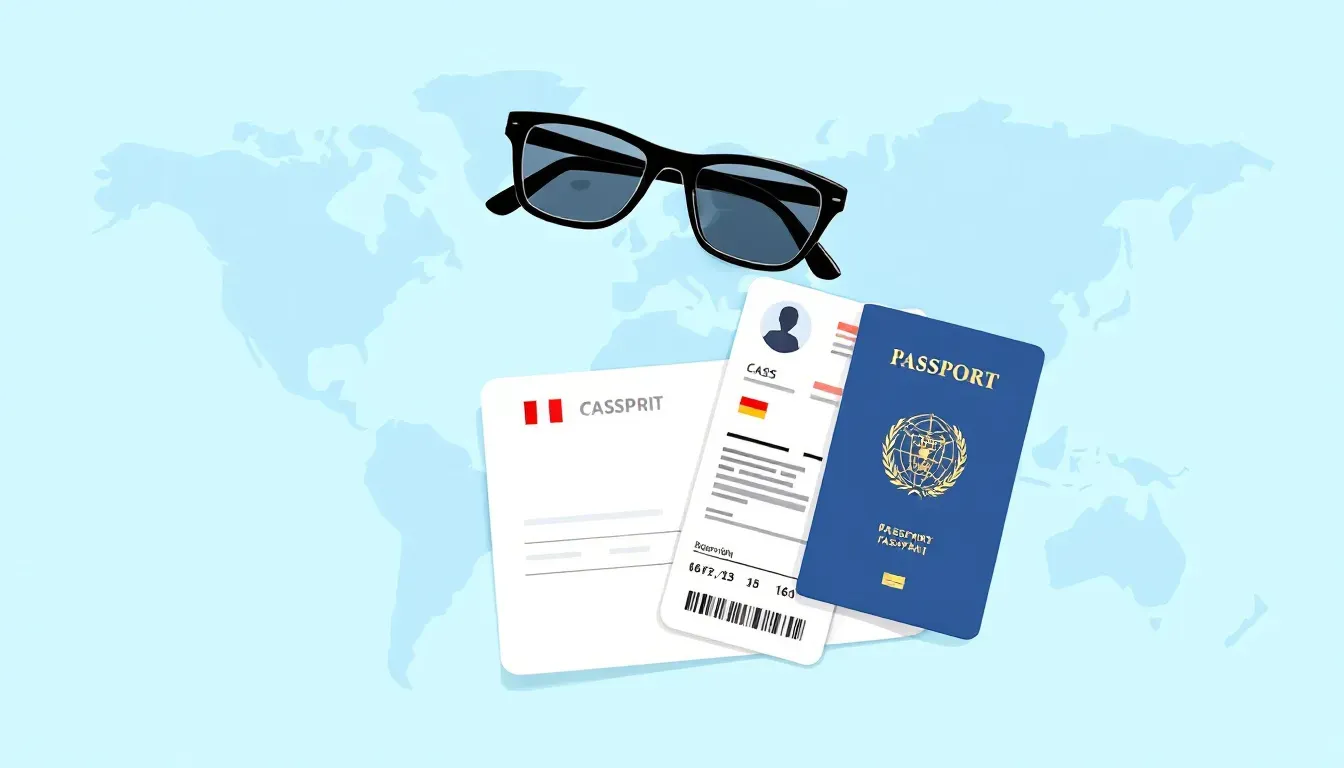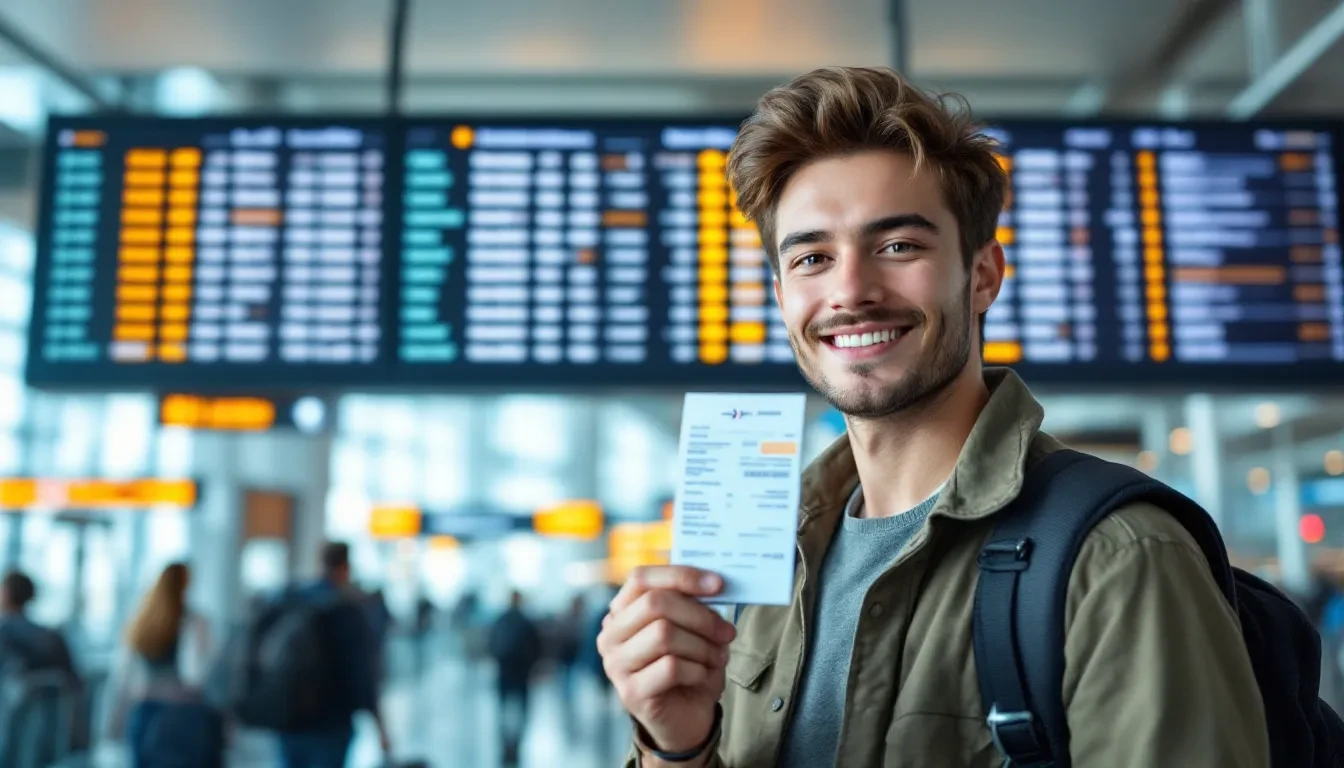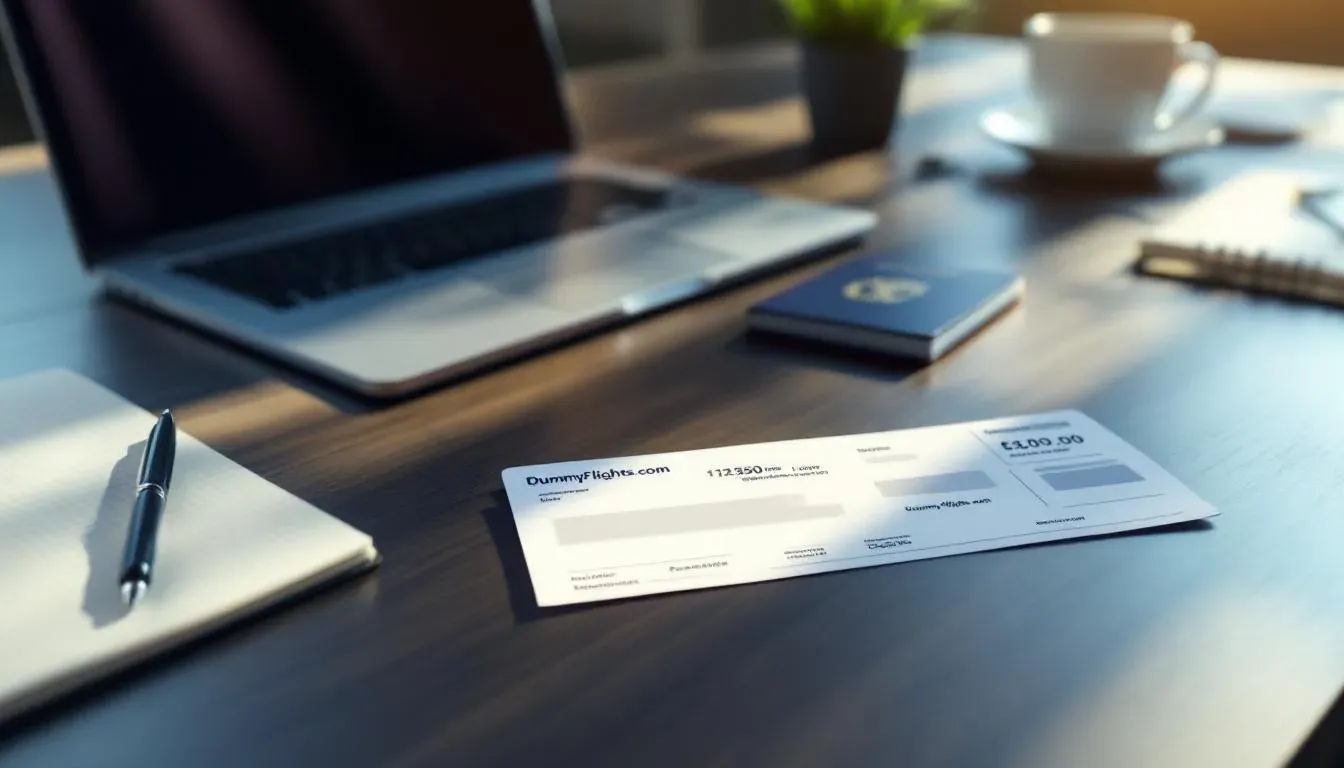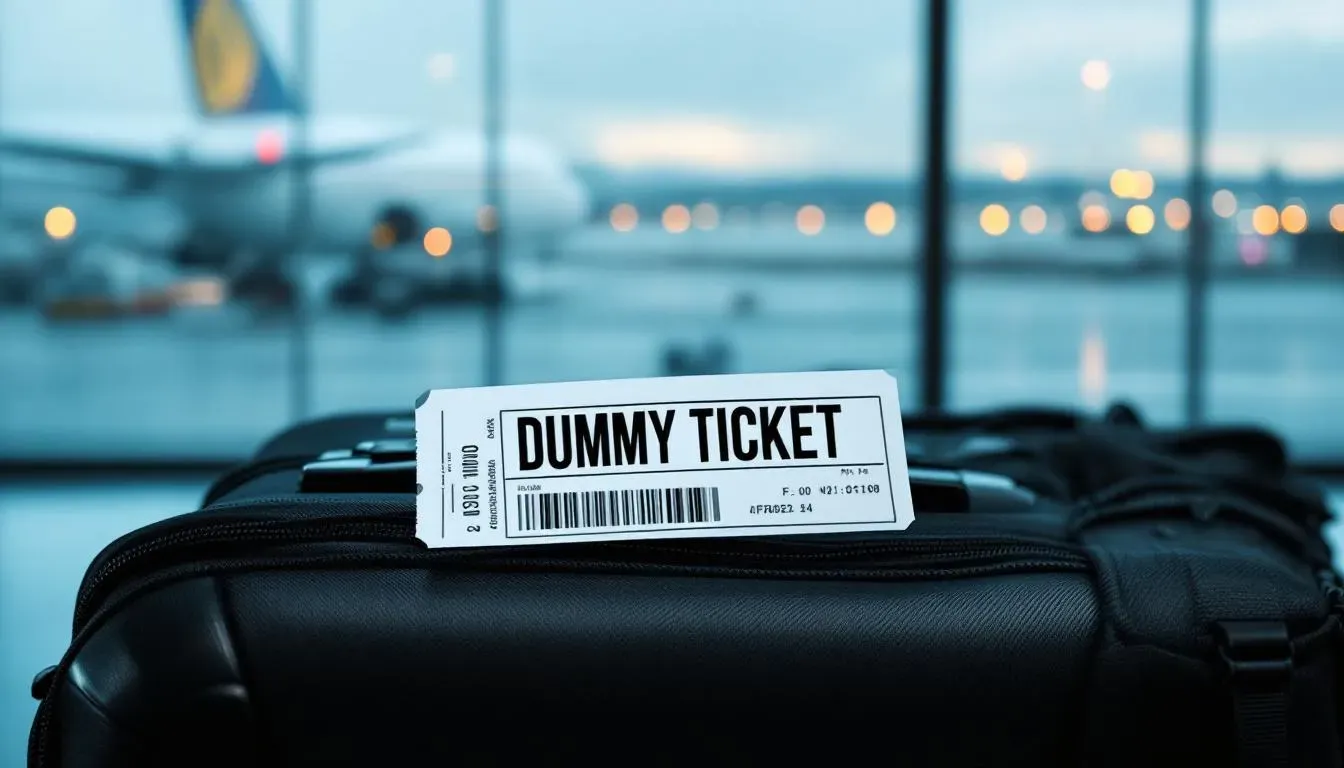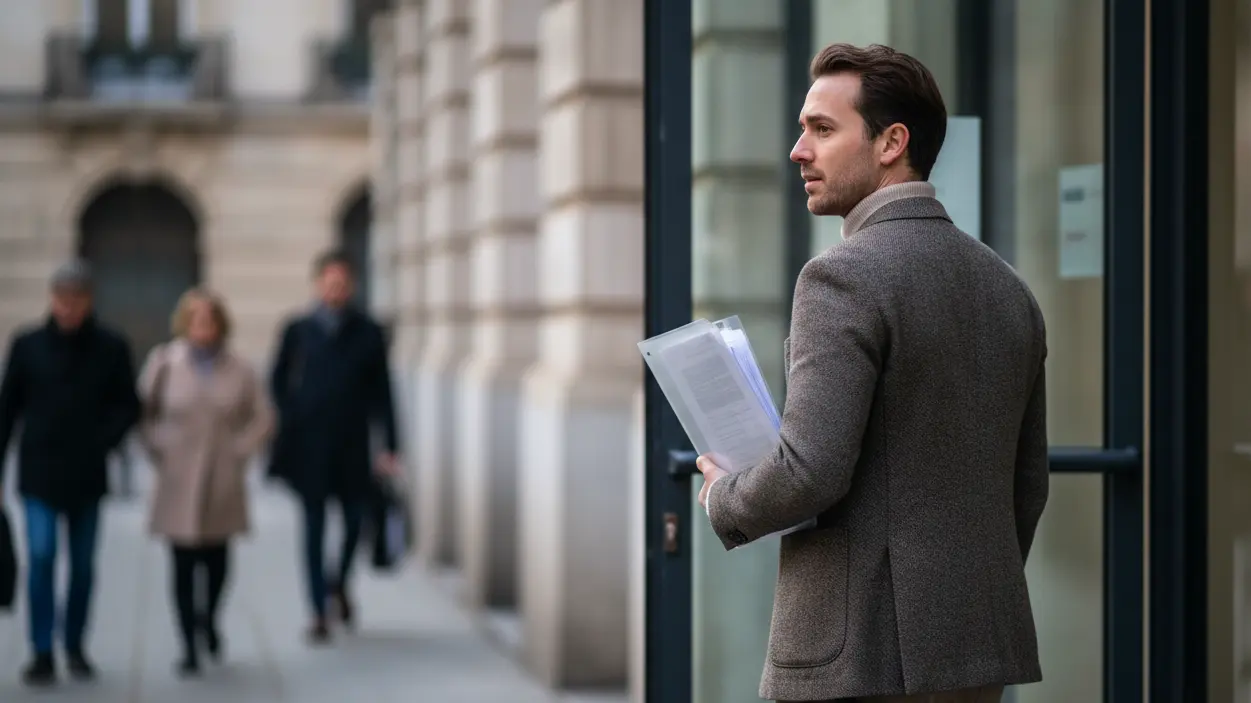Why You Shouldn’t Reuse a Dummy Ticket for Visa
In today's competitive visa landscape, securing a dummy ticket is crucial for proving travel intent without financial commitment. But is reusing an old one safe? Many travelers wonder if recycling a previous reservation can save time and money, yet this practice often leads to red flags during embassy reviews. At Bookforvisa.com, we emphasize fresh bookings to ensure your application stands strong. For more insights, check our FAQ or dive into our blogs for expert tips.
A fresh dummy ticket is always the safer choice for visa applications because it contains an active Passenger Name Record (PNR) that can still be verified on the airline’s website. Reusing an old or expired dummy ticket risks embassy rejection since most flight reservations automatically expire after 48–72 hours. To stay compliant, trusted providers like BookForVisa.com issue fresh, embassy-ready dummy tickets for every submission, ensuring each reservation shows up as a live, verifiable entry in the airline system. This guarantees authenticity, legal safety, and full visa acceptance compliance.
Last updated: October 2025 — verified against current Schengen, UK, US, and GCC embassy visa documentation rules.
Reusing a dummy ticket might seem convenient, but embassies are increasingly vigilant about verifiable documents in 2025. A fresh dummy ticket, complete with a live PNR, aligns perfectly with your itinerary and avoids scrutiny. Learn the myths, risks, and best practices to boost your approval odds. Curious about our story? Visit our About Us page for details on how we support global travelers.
Fresh Booking Every Time. Embassy-Checked and Safe. No Reuse Risks.
Submitting an old or recycled reservation is one of the fastest ways to raise red flags with visa officers. At BookForVisa.com, every order generates a fresh, genuine flight or hotel reservation — complete with a verifiable PNR — so you can apply with confidence and avoid costly delays.
✅ Always a Brand-New Reservation for Each Application
🔍 PNR Code Lets Embassies Verify Instantly
⚡ Fresh Documents Ready in Minutes When You Need Them
💳 Affordable Flat Fee — Avoid Costly Rejections
👉 Apply with confidence — order a fresh dummy ticket instantly at BookForVisa.
Why Embassies Care About Fresh Reservations
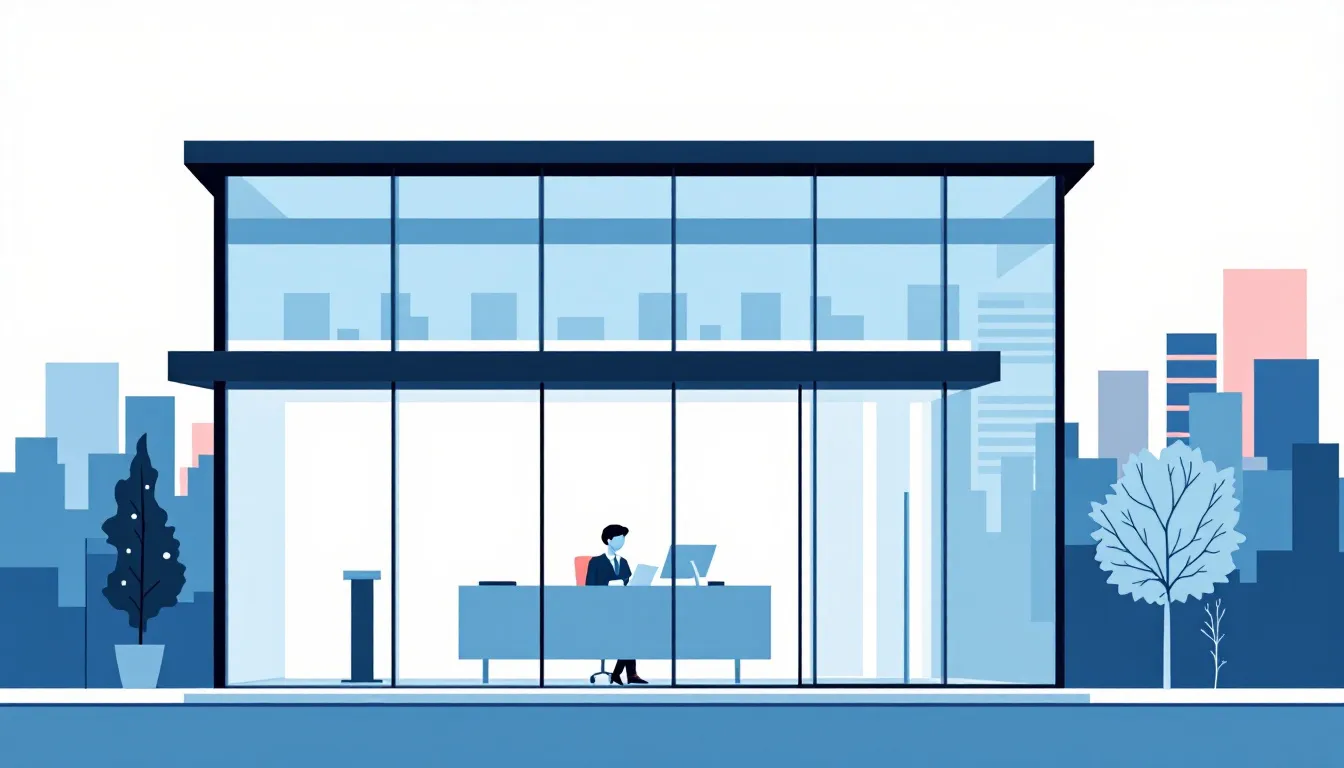
When you apply for a student or visitor visa, the embassy is not just glancing at your passport and stamping it. For visa approval, they want proof that your trip is real, that your plans make sense, and that your documents can be trusted. One of the simplest ways they do this is by checking your flight and hotel reservations, often referencing standards from organizations like IATA.
Think of these reservations as your promise of intent. They show where you plan to go, how long you plan to stay, and how serious you are about traveling. For students, first-time travelers, families, and digital nomads, these documents often make the difference between smooth approval and frustrating delays.
What Visa Officers Actually Look For
Embassies don’t require reservations just for paperwork. They want to confirm that:
- You have a clear plan for entering and leaving their country.
- Your trip dates match the purpose of your visit.
- The name on the reservation matches your passport exactly.
- They can verify your booking directly with an airline or hotel if needed.
✅ Checklist of acceptable proof:
- Flight itinerary with a valid booking reference (PNR).
- Hotel confirmation with booking ID or voucher number.
- Reservation PDF that can be verified online or by phone.
For example, if you’re a student applying for a study visa, the consulate expects to see a booking that shows your arrival before classes begin and your return at the end of the term. If you’re visiting family, they’ll expect dates that match the invitation letter. For digital nomads, they’ll check that your itinerary matches your stated travel plans.
How They Double-Check Your Bookings
Consulates don’t just take your documents at face value. They have quick, simple ways to verify whether your reservation is real:
- PNR lookup. Every genuine flight reservation has a Passenger Name Record (PNR). Consulates can enter it on the airline’s website and instantly see if the booking exists.
- Hotel confirmation codes. Hotels issue a booking reference that can be verified through their system or booking platform.
- Direct contact. In some cases, officers may email or call the airline or hotel to double-check the booking.
This is why a verifiable reservation is far stronger than just a PDF that looks real. A plain document without a live PNR is like a receipt without a transaction — it doesn’t hold up under scrutiny.
✅ Why a PNR matters more than a PDF:
- Shows the booking is live in the airline’s system.
- Confirms the traveler’s name and itinerary details.
- Can be validated by the embassy within seconds.
For you, this means your reservation is not just a piece of paper. It’s a real, checkable proof that backs up your application.
Why Old or Unverifiable Documents Raise Red Flags
Embassies see thousands of applications every year. They know the difference between a live booking and a placeholder document. Submitting a non-verifiable reservation puts your application under unnecessary suspicion.
Common red flags include:
- Mismatched details between your passport and reservation.
- A booking reference that doesn’t exist or has already expired.
- Screenshots from third-party websites without a verifiable code.
- An itinerary that doesn’t match your stated purpose of travel.
- Recycled documents from a past application.
For example, if you’re a family visiting relatives, and your children’s names don’t appear on the hotel reservation, it looks incomplete. If you’re a digital nomad and your flight itinerary shows a random connection through a country you have no visa for, it raises questions about the practicality of your plans.
Consulates prioritize live, verifiable reservations with consistent details. Anything less signals risk, and risk makes them cautious.
Common Mistakes Travelers Make With Reservations
Even smart, experienced travelers sometimes make avoidable mistakes. Here are a few common ones:
- Using old reservations. Reusing an expired booking from a previous application. Once a reservation expires, it no longer exists in the airline’s or hotel’s system.
- Submitting screenshots. Grabbing a screen capture from an online search instead of getting a real reservation with a PNR. Officers can spot this instantly.
- Mismatched names. Having your name written differently on the booking and your passport. For students, this often happens when universities book travel using nicknames.
- Wrong dates. For first-time applicants, booking dates that don’t match the duration of stay allowed by the visa. For instance, applying for a 30-day tourist visa with a hotel reservation that covers 90 days.
- Unrealistic itineraries. Digital nomads sometimes submit itineraries with back-to-back flights that make no practical sense. Embassies notice when travel plans are unrealistic.
If your reservation cannot be verified online or doesn’t align with your application, it weakens your case.
The Smart Way to Keep Your Application Safe
Embassies require reservations that are unique, verifiable, and consistent with your travel story. To avoid delays or refusals, always submit:
- A genuine flight or hotel reservation.
- A booking with a valid PNR or confirmation code.
- Documents that match your name, dates, and purpose of travel.
Treat your reservation as the foundation of your visa application. The stronger and clearer it is, the smoother your approval process will be.
👉 Apply with confidence — order a fresh dummy ticket instantly at BookForVisa.
Risks of Reusing Reservations

Reusing an old dummy ticket might sound harmless, but it’s one of the quickest ways to put your visa application under the spotlight. Embassies and consulates handle thousands of files every week, and they’ve developed sharp eyes for spotting repeat or recycled reservations. If your paperwork raises even a small doubt, your application slows down or, worse, gets rejected.
Let’s look closely at why reusing isn’t worth the risk — and what you should do instead.
What “Reusing” Dummy Ticket For Visa Really Means
When we talk about reusing a reservation, it can happen in a few different ways:
- Submitting the same booking twice. Maybe you used a flight reservation for one visa application last month, and now you’re thinking of submitting the same PNR code again for a new application.
- Borrowing someone else’s reservation. A friend already has a booking, and you change the name or try to pass it off as yours.
- Recycling old documents. You saved a PDF from a past application and simply print it again, even though the booking is no longer live.
Each of these scenarios creates problems because the embassy isn’t only looking at the piece of paper you hand over. They’re looking at whether the reservation still exists, whether the PNR is active, and whether the details line up with your story.
Why Reuse Attracts Extra Scrutiny
Consulates are trained to check consistency. Reused reservations almost always break that consistency. Here’s how:
- Dates don’t match. You might be applying for a visa for December travel, but your reused reservation still shows September. That gap makes officers question whether your travel is real.
- Names are off. Even a small difference in spelling can stand out. If the reused booking was originally made for someone else, it becomes obvious.
- Repeated bookings in the system. If the same PNR code shows up in multiple applications — yours or someone else’s — consulates notice immediately.
Embassy workflows are designed to flag these inconsistencies. When a reused booking pops up, it may be escalated for manual verification. That’s where delays start. Officers might call the airline, check with the hotel, or ask you for additional proof.
For you, that means more questions to answer, more documents to provide, and a longer wait before your visa gets approved.
Real Consequences You Should Know
What happens when you reuse a dummy ticket? It’s not always an instant rejection, but the risks are real and avoidable.
Here’s what could happen:
- Delays in processing. Officers set your file aside for extra checks, which can add weeks to the process.
- Requests for more documents. You might suddenly need to submit bank statements, employment letters, or other paperwork to make up for the weak reservation.
- Refusals. If the reused booking is expired, unverifiable, or clearly recycled, the embassy can reject the application outright.
- Loss of credibility. Even if you reapply, your name may be remembered for having suspicious documents, which doesn’t help future applications.
Think of it this way: your reservation is the first impression your application makes. If that first impression feels careless or suspicious, you’re starting the process on the wrong foot.
Reuse Dummy Ticket: Visa Scenarios Travelers Face
To see how this plays out in real life, let’s walk through a few common examples.
Reusing a Previous Dummy Ticket Booking
A student applies for a Schengen student visa using a dummy flight ticket for September. The application is refused. In November, the student tries again — but submits the exact same PDF instead of arranging a fresh dummy ticket.
The embassy checks the booking code and e ticket number, finds the dummy ticket dates expired months ago, and immediately requests updated fresh flight reservations. The application stalls while the student scrambles to correct the travel details and provide valid proof for visa purposes.
An Agent Cutting Corners
A travel agent tries to save time by handing out the same verified dummy ticket to several clients applying for UK visa and Schengen. But consulates are strict — when the same round trip reservation shows up in two files, the reservations visa officers notice quickly.
Both applicants are delayed, one is even asked for a real ticket or temporary flight reservation with a major carrier like Air France or Air India. The agent loses credibility, and the clients pay the price with longer visa process times.
Dates Don’t Match
A family applies for tourist visas. They reuse an old dummy hotel booking and combine it with a past onward ticket, but the flight details don’t line up with the new round trip ticket. This inconsistency raises red flags, as embassies reject fake or unverifiable ticket confirmations. The embassy asks for corrected dummy hotel and flight reservations. Instead of enjoying smooth planning like many frequent travelers, the family faces extra stress, worries about whether their visa approved status will come in time, and even risks extra cancellation fees or hidden fees from using outdated files.
Each of these situations could have been avoided with a genuine dummy ticket — the type of fresh dummy ticket that embassies can confirm instantly, the same way they can verify a normal airline booking from major airlines like Air Canada, Singapore Airlines, or Air Asia.
By submitting temporary reservations that are unique, verifiable, and free of errors, applicants keep their onward travel documents clean, avoid problems when a visa expires, and move one step closer to getting their visa approved.
How Reusing Flight Reservation Hurts Even Honest Travelers
You might think, “I wasn’t trying to trick anyone — I just didn’t know better.” Unfortunately, embassies don’t measure intent. They measure documents.
Even if you’re completely genuine, reusing a dummy air ticket can:
- Make your application look careless. Officers may wonder if the rest of your paperwork is also outdated.
- Create unnecessary suspicion. Once an officer has doubts, they look harder at everything else in your file.
- Slow you down. Instead of a quick approval, you’re asked for new documents, wasting valuable time.
For digital nomads juggling through multiple visa applications, for families eager to reunite, or for first-time travelers still learning the ropes, these mistakes can be especially painful. A single reused reservation can undo all the effort you’ve put into gathering the right paperwork.
A Traveler’s Checklist: Red Flags to Avoid
Before you hand in your application to visa authorities, use this quick checklist to protect yourself from the pitfalls of reuse:
✅ Always match your passport name exactly. No nicknames, no missing middle names.
✅ Use a verifiable flight reservation with a live, PNR code. If the embassy checks, it must show up in the airline’s system.
✅ Avoid recycled PDFs. If you used it before, don’t use it again. Order a new reservation.
✅ Check your dates. Make sure your travel dates line up with your visa type and your purpose of visit.
✅ Don’t share reservations. Each traveler should have their own booking, even when traveling as a group.
✅ When in doubt, get a fresh reservation. It costs less than fixing the problems a reused airline ticket can cause.
Reusing reservations might feel like a shortcut, but in reality it slows you down and raises suspicion. Embassies expect documents that are unique, verifiable, and consistent with your application.
If you want your visa application process to be smooth, treat each application as fresh — with fresh documents to match.
✈️ Get your embassy-approved reservation in minutes — Book today at BookForVisa.

BookForVisa's Fresh Booking Guarantee
When you order through BookForVisa, you don’t get a recycled PDF or a template that just “looks” like a ticket. You get a brand-new reservation created in real time with a unique PNR code — the same kind of record airlines and hotels use every day. Visa officers can check it instantly on the airline or hotel system, and it shows as an active booking for the dates you provide.
Think of it as a bridge between your travel plans and your visa approval. It’s not a fake document. It’s not a guess. It’s genuine, legal, and exactly what consulates are asking for — proof of intent to travel, presented in a form they can verify without hesitation.
Why Our Fresh Ticket Makes All the Difference
Here’s what sets BookForVisa apart — and why thousands of students, professionals, families, and digital nomads rely on us every day:
✅ Instant confirmation: As soon as your payment clears, you get a PDF with your name, itinerary, and booking code.
🔍 Fully verifiable: Visa officers can check the booking on the airline or hotel’s official system. No stress, no awkward questions.
🔄 Unlimited free date changes: If your embassy appointment shifts or your travel plans change, we update your booking at no extra charge.
❌ Zero cancellation fees: Your reservation is for visa evidence only. You’ll never be billed penalties the way you would with a normal ticket.
✈️ Transit country filters: Avoid routings through countries where you’d need a separate transit visa. Our system lets you skip that headache.
🌍 Multi-city or group bookings: Planning a bigger trip? Need to cover more than one destination? We’ve got options.
⚡ Embassy-ready speed: Already at the consulate and missing documents? We can issue a fresh reservation while you wait.
Every feature is designed to reduce your risk and increase your peace of mind.
How Fresh Reservations Keep You Out of Trouble
Here’s how simple the process is — and why it works better than anything else:
1. You place your order, share your name, dates, and basic trip details.
2. Our system generates a live reservation that produces a real PNR code.
3. You download your PDF instantly and present it at the embassy.
If the consulate checks — and many do — they’ll find a legitimate booking under your name. You don’t end up embarrassed by an unverifiable PDF, and you don’t waste money on a non-refundable full ticket before your visa is even approved.
That’s the advantage: your proof looks exactly how it should because it is exactly what it should be.
Simple Pricing, No Surprises
Transparency matters, especially when you’re dealing with something as important as visas. Here’s our straightforward structure:
- Flight reservations: $15 per person. Works for one-way or round-trip.
- Hotel reservations: $15 per person. Unlimited stay length.
Extras like multi-city flights or group hotel bookings are available, but you only pay for what you need. No hidden costs, no surprise charges.
Want to check the full details? You can always view our complete [pricing page].
Why You Can Trust BookForVisa
Everything we issue is:
- Genuine: Real bookings generated through our accredited travel platform.
- Legal: Accepted worldwide for visa applications.
- Verifiable: Embassies can confirm with airlines or hotels directly.
Visa officers are trained to spot outdated or unverifiable documents. Submitting the same dummy ticket twice, handing in a PDF without a live PNR, or relying on a friend’s old file puts your approval at risk.
A fresh booking from BookForVisa does the opposite: it gives you a clean, verifiable record tied directly to your application. For $15, you remove a huge source of stress and step into your visa interview with confidence.
👉 Need documents fast? Download your fresh reservation instantly.
What Travelers Are Saying
Frequently Asked Questions
Is Dummy Flight Ticket Legal?
Yes. Our reservations are genuine records created through accredited systems. They are not fake — they are real reservations that you can use for visa applications.
Can The Embassy Verify The Booking?
Absolutely. Every reservation comes with a booking code (PNR) that consulates can check directly online or by phone, just like they would for any major carriers like United Airlines.
How Long Is A Dummy Ticket Valid For Visa Purposes?
Each reservation is valid only for a limited time, usually a few days. Always time your order close to your embassy appointment.
Can I Change The Dates After I Order?
Yes. We offer unlimited date changes at no cost. This flexibility ensures your booking matches your appointment schedule.
Will Using A Reservation Affect My Actual Ticket Purchase?
Not at all. Our service is independent. After your Schengen visa or any other visa is approved, you can buy a fully paid ticket without restrictions.
What If The Consulate Asks For Further Proof?
Show them the PNR and let them verify. Our team can also reissue the reservation if needed to confirm your booking is a dummy ticket accepted by embassies.
How Quickly Can I Get A Reservation If I’m At The Embassy?
We provide instant PDF delivery. The file is ready immediately after checkout, giving you instant delivery when time matters most.
Is It Safe To Use This Service For Family Or Group Applications?
Yes. We can issue group or multi-city dummy ticket bookings for multiple destinations. Each traveler receives a unique reservation, priced per person, with free dummy ticket updates and no risk of non-refundable ticket penalties.
What's the Difference Between a Dummy Ticket and a Full Booking?
A dummy ticket is a temporary, verifiable reservation without payment commitment, ideal for visas. Full bookings involve upfront costs and potential fees—use ours to test waters safely.
Do All Embassies Accept Dummy Tickets in 2025?
Most do for proof of intent, but always confirm via official guidelines. Our verifiable PNRs have a 98% acceptance rate across Schengen, US, UK, and Canada.
👉 🌍 Travel plans ahead? Order your fresh dummy ticket today.

